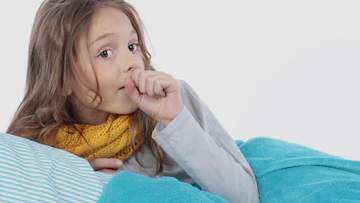Pertussis is also known as whooping cough. It is an infection that affects the respiratory system and spreads easily from one person to another. Most people identify it as a bad cough that is followed by sudden breathing. Before the development of the vaccine whooping cough was identified as a childhood disease. Currently, whooping cough affects babies who are not yet through with the vaccination course and adults who have low immunity.
Causes
Pertussis is caused by a bacteria known as Bordetella pertussis. Sneezing or coughing by an infected person can lead to the spread. This leads to tiny droplets being released into the air leading to intake from the surrounding.
Symptoms of pertussis.

Upon infection, with whooping cough, a person takes around a week for the signs and symptoms to emerge. Different people have different time frames for the signs to appear and therefore some may take longer. At first, the symptoms are not severe and are similar to those of the common cold. Some of the signs and symptoms of pertussis include
- A runny nose.
A runny nose involves mucus dripping out of your nose. This causes discomfort especially in public as the urge to blow your nose is frequently felt.
- Frequent cough.
Frequent coughing can be a distraction as it leaves one tired and at times interrupt sleep. This can be a major sign and symptom of whooping cough.
- Nasal congestion.
This is an accumulation of stuff in the nose making it difficult to breathe. However, one can use recommended home remedies to decongest the nostrils.
- Fever.
These are extremely high temperatures experienced by a person. Mostly one experiences shivering and a prolonged headache.
- Cassidy Hutchinson wiki, age, family, husband, children,
- Keanu Reeves Bio, Age, Edu, Success, Net worth.
- Scott Fisher wiki, age, KTBC-7, family, children, wife, net worth.
- Alfred Mutua bio, age, family, wife, education.
- Randy Meier Bio-Age, Edu, Children, Wife, Net Worth.
- Clemente Morales Bio, Wiki, KTAB News, Age, Education, Family, Children, Wife, Net Worth, and Career
- Gene Lavanchy wiki, age, children, wife, net worth, career
The signs and symptoms get worse with time. Thick mucus is formed in the nostrils leading to uncontrollable coughing. In most cases, a prolonged cough is one of the major signs of whooping cough in adults. Children may not cough but they struggle to breathe.
Treatment of pertussis.
Administration of the pertussis vaccine is the best method to prevent whooping cough. Doctors mostly recommend the administration of the vaccine to infants. It is given to children at the ages of
- 2 months
- 4 months
- 6 months
- 15 to 18 months
- 4 to 6 years.
The vaccine is in form of an injection. However, the vaccine has some side effects which are not too harsh on the body. Additionally, if a person has been in contact with an infected person a doctor can prescribe antibiotics to provide protection against contracting whooping cough.
- Egerton university, fees, location, courses.
- Kenya Institute of special education, courses.
- List of best private primary schools in Kirinyaga County.
- Kenya Medical Training College, courses, requirements.
- List of Best private secondary schools in Nairobi County.
- What is the history of Kenyatta University?
- Public Universities in Kenya